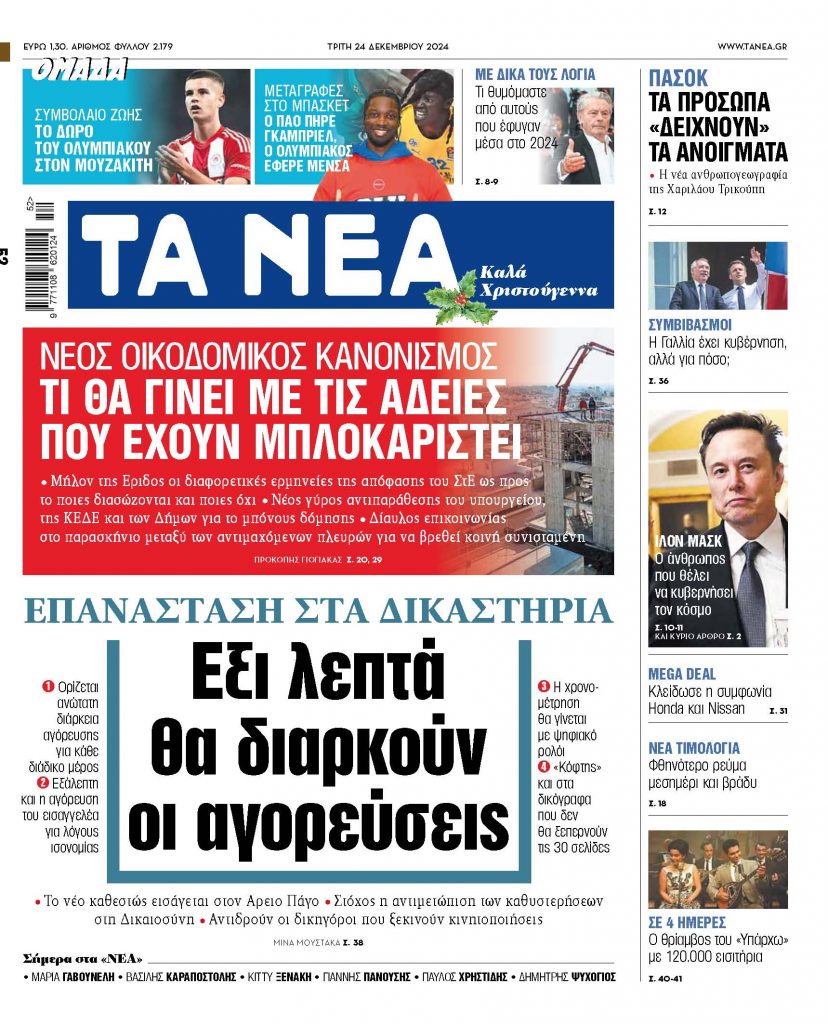By George Gilson
The Greek government today activated anti-aircraft defence systems on its Aegean islands, with an order issued by the Chairman of the Joint Chiefs of Staff, General Konstantinos Floros following an unprecedented barrage of 168 violations of Greek national airspace yesterday and today, including 41 over seven inhabited Greek Aegean islands (the largest being Rhodes, Samos, and Kalymnos) and the Imia rock islets, which brought the two countries to the brink of war in 1996.
For months, Turkey has continually and vociferously demanded demilitarisation of the islands based on provisions in the 1923 Lausanne Treaty.
Athens’ response is that the defensive forces on the islands are entirely legitimate given the Turkish Parliament’s 1995 decision that if Greece exercises its right under international law to extend its territorial waters in the Aegean that would be a cause for war, and also given presence of the huge Aegean Army with a major landing force on the coast of Anatolia, a stone’s throw away from the Greek islands, and the continuing Turkish occupation of Cyprus.
Earlier in the day, the government decided to suspend talks with Turkey on confidence-building measures and Prime Minister Kyriakos Mitsotakis has briefed NATO Secretary General Jens Stoltenberg
The Greek foreign ministry issued a strongly worded demarche yesterday, and a second one today, condemning Turkey’s actions provocative, illegal, and damaging to bilateral relations.
Foreign Ministry Secretary General Themistoklis Demiris, in the demarche he handed to Turkish Ambassador to Athens Burak Özügergin yesterday at the foreign ministry, underlined that the provocative airspace violations constitute a flagrant violation of international law, endanger civil aviation in the area, and strongly undermine efforts to build mutual trust in bilateral relations.
Mitsotakis is scheduled to meet with US Ambassador Geoffrey Pyatt in Athens today.
The Greek-Turkish talks on the development of confidence-meeting measures were discussed at a 13 March meeting between the PM and Turkish President Recep Tayyip Erdogan in Istanbul, which at the time was perceived by Athens as very positive, and photos showed the two leaders smiling in an informal, cordial atmosphere.
That was less than three weeks after Russia’s invasion of Ukraine, at a time when Turkey was feverishly trying to repair tattered relations with the US, deriving from Ankara’s extremely close ties with Vladimir Putin and Ankara’s purchase of Russian S-400 missile systems, and to demonstrate that it was a well-behaved NATO ally.
Although Ankara has refused to impose sanctions on Russia, it has attempted to vigorously play the role of honest broker, twice hosting Russo-Ukrainian talks in Turkey.
It also belatedly decided to close the Dardanelles to Russian war ships and more recently closed it airspace to Russian aircraft.
Mitsotakis briefs Stoltenberg, ‘provocations will not go unanswered’
“I made it clear that this behaviour by a NATO member-state is simply unacceptable,” Mitsotakis said today of his telephone contact with NATO’s Secretary General.
“This must cease immediately. Turkey is not complying with any sanctions [against Russia], and that is not in line with the [stance of] the European family,” Mitsotakis said today.
“As I said, provocations will not go unanswered, either on the ground or on the diplomatic front. Obviously, we shall raise the issue of Turkey’s provocativeness in all quarters,” the PM underlined.
Aside from NATO, the Greek government has briefed the EU and all UN Security Council members on the latest provocations.



![Ελληνική οικονομία: Ποιες είναι οι προκλήσεις μετά το Ταμείο Ανάκαμψης [γραφήματα]](https://www.ot.gr/wp-content/uploads/2023/12/ot_artificial_ependyseis-600x352.png)




